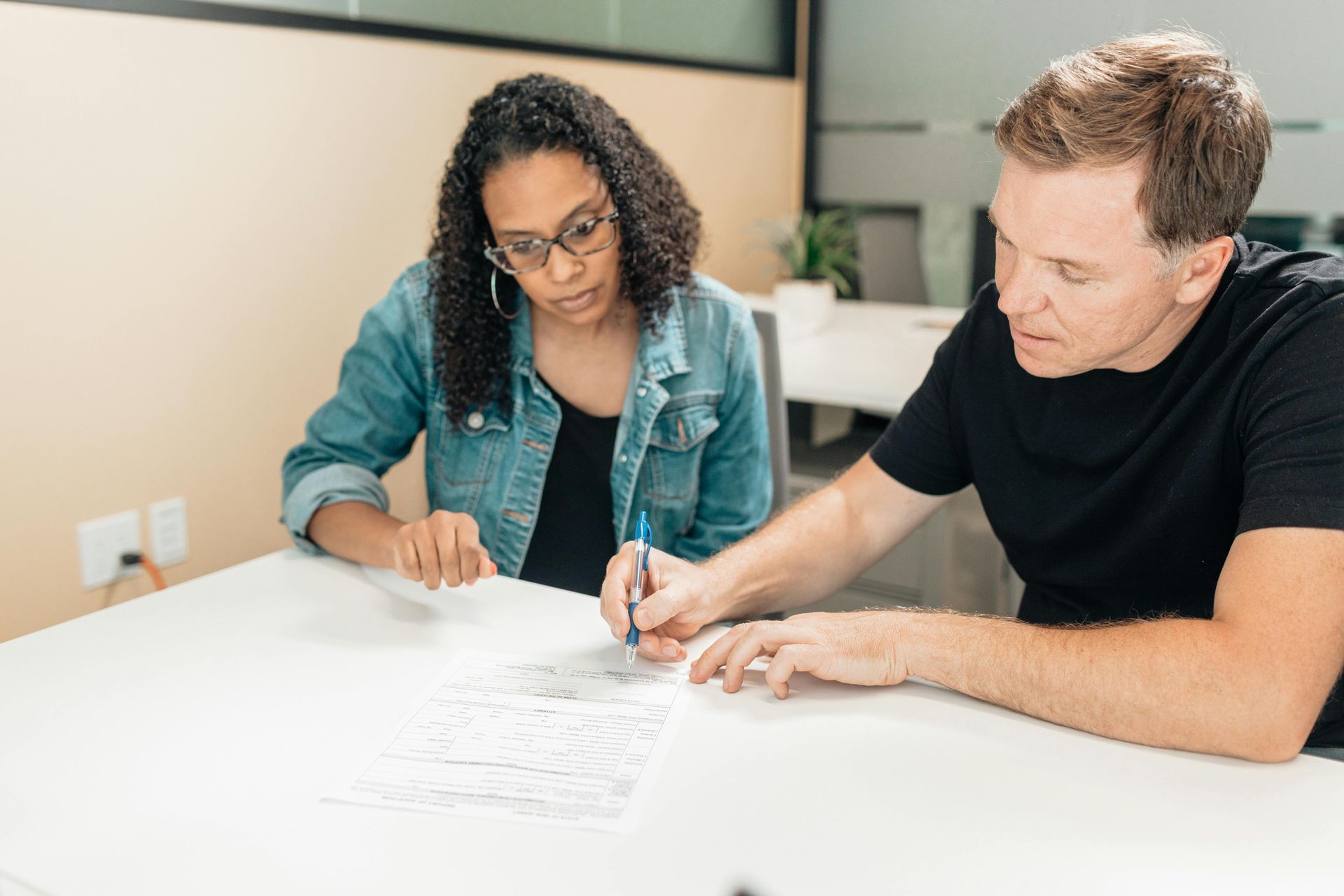Domestic Violence and Restraining Orders in Broward County
Understanding the Legal Protections Available to You
Domestic violence is a serious issue that affects individuals and families across Florida, and Broward County is no exception. In 2023, the Florida Department of Health reported a significant number of domestic violence offenses in the county, highlighting the critical need for awareness and legal protection. If you are experiencing domestic violence, it is vital to know that you are not alone and that legal remedies are available to help ensure your safety. At The Hamil Scott Law Firm, we are dedicated to providing compassionate and effective legal assistance to those in need. Nicole Hamil-Scott, Founding and Managing Attorney, is one of Florida's elite Divorce, Family, Criminal Defense, and U.S. Immigration Lawyers. She not only works for you...she works with you, guiding you through the process of obtaining a restraining order and navigating the legal system with care and expertise.
This blog post will provide an overview of what domestic violence is, how to obtain a restraining order (also known as an injunction for protection) in Broward County, and what to expect during the process.
What Constitutes Domestic Violence in Florida?
In Florida, "domestic violence" is defined broadly to include a range of abusive behaviors. According to Florida Statute § 741.28, it involves any assault, aggravated assault, battery, aggravated battery, sexual assault, sexual battery, stalking, aggravated stalking, kidnapping, false imprisonment, or any other criminal offense resulting in physical injury or death of one family or household member by another family or household member. The term "family or household member" is also defined expansively to include:
- Spouses and former spouses.
- Persons related by blood or marriage.
- Persons who are currently residing together as a family or who have resided together in the past.
- Parents of a child in common, regardless of whether they have ever been married or resided together.
It is important to understand that domestic violence is not limited to physical abuse. It can also include threats, stalking, and other actions that cause a person to live in fear.
The Purpose of a Restraining Order
A restraining order, formally called an "injunction for protection against domestic violence" in Florida, is a civil court order designed to protect a person from domestic violence. Once a judge issues a restraining order, it prohibits the abuser from having any contact with the victim. This can include:
- Coming within a certain distance of your home, workplace, or children's school/daycare.
- Contacting you by phone, email, text, or through a third party.
- Committing any further acts of violence.
- In some cases, the order may grant you temporary exclusive use of a shared residence and/or temporary custody of minor children.
A restraining order is a powerful legal tool that provides immediate and enforceable protection. A violation of a domestic violence injunction is a criminal offense, and law enforcement can arrest the abuser immediately upon violation.
How to Obtain a Restraining Order in Broward County
The process for obtaining a domestic violence restraining order in Broward County is designed to be accessible to victims, and there is no filing fee. The first step is to file a Petition for Injunction for Protection Against Domestic Violence.
Where to File
You can file your petition in person at the Broward County Courthouse located in Fort Lauderdale or at the West Regional Courthouse in Plantation.
- Broward County Courthouse (Central): 201 SE 6th Street, Fort Lauderdale, FL 33301. The Domestic Violence Intake Unit assists with filings.
- West Regional Courthouse: 100 N Pine Island Road, Plantation, FL 33324.
It's recommended to arrive early, as the process can take a few hours. Staff from the Clerk of Court's office are available to assist you with the paperwork.
What to Bring
When you go to file, it is helpful to have the following information and documents:
- Your photo identification.
- Information about the abuser, including their full name, physical description, date of birth, home and work address, and any known phone numbers.
- Specific details about the abuse, including dates, locations, and a description of the incidents. Be as detailed as possible, as this is the evidence the judge will review.
- Any supporting documentation, such as police reports, medical records, photographs of injuries, or threatening messages (texts, emails). A police report is not required to file, but it can be very helpful.
The Hearing Process
After you file the petition, a judge will review it. If the judge finds that the allegations meet the legal standard for domestic violence and that you are in imminent danger, they can issue a Temporary Injunction for Protection. This order is effective immediately and lasts for a short period, typically 15 days, until a full hearing can be scheduled. The abuser will be served with the petition and the temporary order by law enforcement.
The next step is the final hearing. Both you and the abuser will have the opportunity to present evidence and testimony to the judge. This is where having an experienced attorney like Nicole Hamil-Scott can be invaluable. She can help you prepare for the hearing, organize your evidence, question witnesses, and make a compelling case for why a permanent injunction is necessary. The judge will listen to both sides and decide whether to issue a Final Judgment of Injunction for Protection, which can be for a specific duration or permanent.
What If I Need Immediate Protection?
In a true emergency, you should always call 911. If you need to file for an injunction after regular business hours or on a weekend, Broward County has procedures in place. You can contact the Henderson Mental Health Center Crisis Line at 954-463-0911. They will assist you in determining if you qualify for an emergency restraining order and can facilitate the process with a duty judge.
The Importance of Legal Representation
While it is possible to file for a restraining order on your own, having legal representation from an experienced attorney can significantly improve your chances of success. A skilled attorney can:
- Ensure your petition is correctly and thoroughly filled out, providing the strongest possible case.
- Help you gather and present the necessary evidence for the hearing.
- Represent you in court, questioning the abuser and other witnesses.
- Advocate for the most comprehensive protections in your final order.
- Handle other related legal matters, such as divorce, child custody, or criminal defense if the abuser is also facing charges.
Navigating the legal system while dealing with the trauma of domestic violence is incredibly difficult. An attorney can be your advocate, handling the legal complexities so you can focus on your safety and well-being.
Conclusion
Domestic violence is a pervasive issue, but the legal system in Broward County offers a critical pathway to safety through restraining orders. Understanding what constitutes domestic violence and how to navigate the process for an injunction is the first step toward reclaiming your life.
At The Hamil Scott Law Firm, we are committed to providing a safe, supportive, and effective legal resource for victims of domestic violence. Nicole Hamil-Scott not only works for you...she works with you, offering dedicated advocacy and expert legal counsel. If you or someone you know is in danger, please reach out. We are here to help you secure the protection you deserve and begin your journey toward a safer, brighter future.
Disclaimer: This blog post is intended for informational purposes only and does not constitute legal advice or create an attorney-client relationship. 1 Divorce and equitable distribution laws in Florida are complex and highly fact-specific. You should consult with a qualified Florida divorce attorney regarding your particular situation and circumstances. Contact The Hamil Scott Law Firm for personalized legal counsel.












